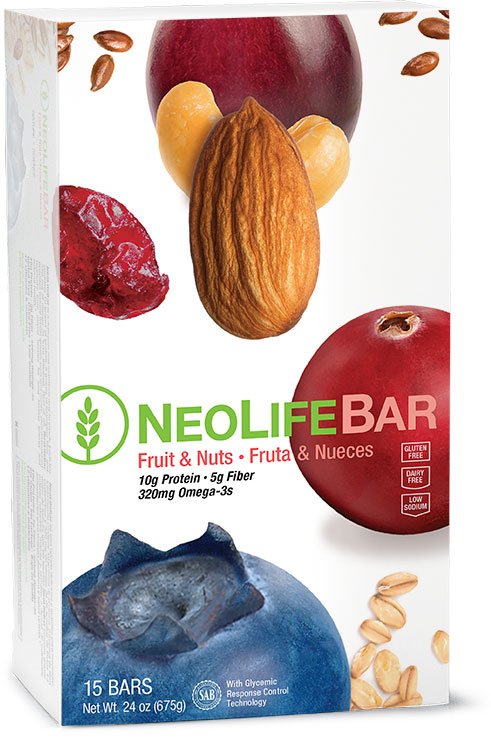 As a new parent, making sure your newborn is getting the right nutrition is bound to be a priority—and that’s normal! Proper early stage nutrition is key to establishing a healthful pathway for your child. Omega-3s are essential for so many aspects of early growth and development, particularly for the brain, the eyes and the cardiovascular system where omega-3s are really concentrated.1 It is important that pregnant and breastfeeding mothers are consuming adequate amounts to help provide the most benefits to their newborn.
As a new parent, making sure your newborn is getting the right nutrition is bound to be a priority—and that’s normal! Proper early stage nutrition is key to establishing a healthful pathway for your child. Omega-3s are essential for so many aspects of early growth and development, particularly for the brain, the eyes and the cardiovascular system where omega-3s are really concentrated.1 It is important that pregnant and breastfeeding mothers are consuming adequate amounts to help provide the most benefits to their newborn.
It has been shown that the amount of omega-3s that a mother ingests directly impacts how much omega-3 is in her fetus.1 When a baby is forming in the womb, organs start developing at a rapid rate, and good omega-3 nutrition is particularly vital to proper brain and retina (found in the eye) development.1 How do omega-3s contribute to proper brain and eye health in fetal development? Let’s focus on the eyes. Omega-3s are embedded in the membrane of the photoreceptors in our eyes’ retinas. This means that of all the fatty acids in the membrane of our eyes, long-chain omega-3s make up approximately 60% of the total.2 DHA is the most important long chain omega-3 for the brain and eye health of an infant, contributing to normal eyesight and brain function.1
To obtain long-chain omega-3 fatty acid health, it is recommended that pregnant or breastfeeding moms consume 8-12 ounces of seafood per week, based on the 2015-2020 Dietary Guidelines for Americans.1,3
Knowing these important roles of omega-3s in fetal development, many studies have sought to understand the benefits of maternal omega-3 supplementation during pregnancy and lactation. One study evaluating the effects of supplementation, with a total of almost 2.5g (2,500mg) omega-3s, during pregnancy and lactation found that supplementation favorably impacted children’s mental processing scores, reflecting differences in mental development.4Benefits of omega-3 supplementation during pregnancy have included enhanced infant problem-solving skills, improved hand and eye coordination among children, and decreased levels of inflammation in mothers.1 A recent study published in 2018 examined whether low plasma levels of omega-3 fatty acids in Danish mothers were associated with an increased risk of early preterm birth and found that women who had the lowest amount of EPA plus DHA had a 10 times greater risk of early preterm birth compared to women who had the highest amounts of EPA plus DHA.5 This showcases the importance of dietary omega-3 intake impacting birth outcomes. The changes during infancy and childhood are fast and exciting—motor development and dietary patterns are established—and then the teenage years…
NeoLifeBar – #3850
Contains 320mg of omega-3s in every delicious bar, provided from flaxseed. Flaxseed is a plant source of omega-3 alpha-linolenic acid (ALA).
Salmon Oil Plus – #3502
NeoLife’s Salmon Oil Plus was shown in a human clinical study to improve Omega-3 Index scores by 38% after only 8 weeks of supplementation.18 Additionally, at the end of the 8 weeks, the inflammatory index decreased by 68%.18 Salmon Oil Plus is the first supplement of its kind to provide a complete source of the eight nutritionally important omega-3 fatty acids found in fish, including 460mg of EPA and 480mg of DHA per serving.*
References:
- Swanson D, Block R, Mousa SA. Omega-3 fatty acids EPA and DHA: health benefits throughout life. Adv Nutr. 2012;3(1):1-7. doi:10.3945/an.111.000893
- Birch DG, Birch EE, Hoffman DR, Uauy RD. Retinal development in very-low-birth-weight infants fed diets differing in omega-3 fatty acids. Invest Ophthalmol Vis Sci. 1992;33(8):2365-2376.
- US Department of Health and Human Services; US Department of Agriculture. 2015–2020 Dietary Guidelines for Americans. Washington, DC; 2015. https://health.gov/dietaryguidelines/2015/. Accessed May 30, 2018.
- Helland IB, Smith L, Saarem K, Saugstad OD, Drevon CA. Maternal supplementation with very-long-chain n-3 fatty acids during pregnancy and lactation augments children’s IQ at 4 years of age. Pediatrics. 2003;111(1):e39-e44. doi:10.1542/peds.111.1.e39
- Olsen SF, Halldorsson TI, Thorne-Lyman AL, et al. Plasma concentrations of long chain n-3 fatty acids in early and mid-pregnancy and risk of early preterm birth. EBioMedicine. 2018;0(0). doi:10.1016/j.ebiom.2018.07.009
CLUB MEMBER
Join our wellness community as a Club Member and save 15-30% off all your orders!
Membership Perks
- Free to Join
- Shop Exclusive Products
- Save 15-30% Off Suggested Retail
- Nutrition & Personal Development
- Free Personal Website to Share Savings with Friends
- Earn Free Products when you Refer Friends
- Weight Loss & Fitness Challenges
- Supportive Wellness Community
PROMOTER
Join as a Promoter, let us pay you for sharing NeoLife and help us End the Trend of poor wellness and poverty!
Promoter Perks
All the perks of Club Membership PLUS…
- Own a Nutrition Startup Business (like a franchise but only a fraction of the startup cost)
- Money back rebates on orders… the more you buy & share the more you make
- Spare-time, part-time or full-time income
- Exciting Incentives like Cash and Travel
- Subscription to Team NeoLife app for training & sharing
- Business retreats, leadership training & personal development
- Performance-based Recognition
- Fun Events & Supportive Wellness Community

